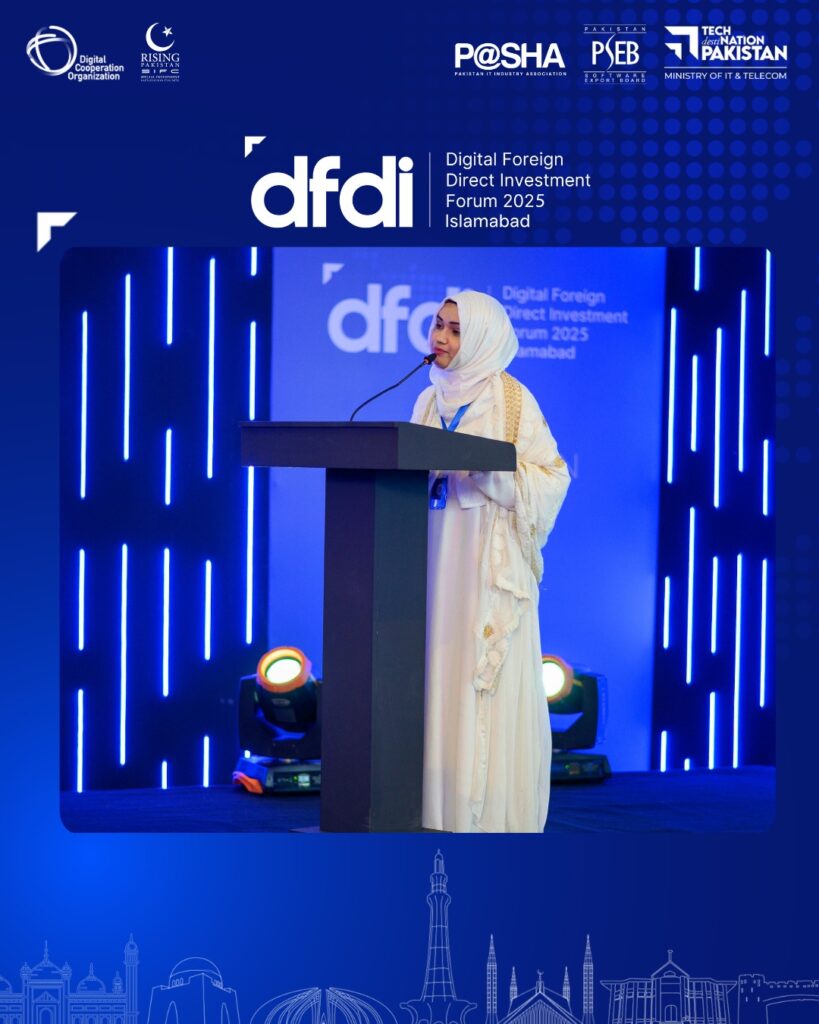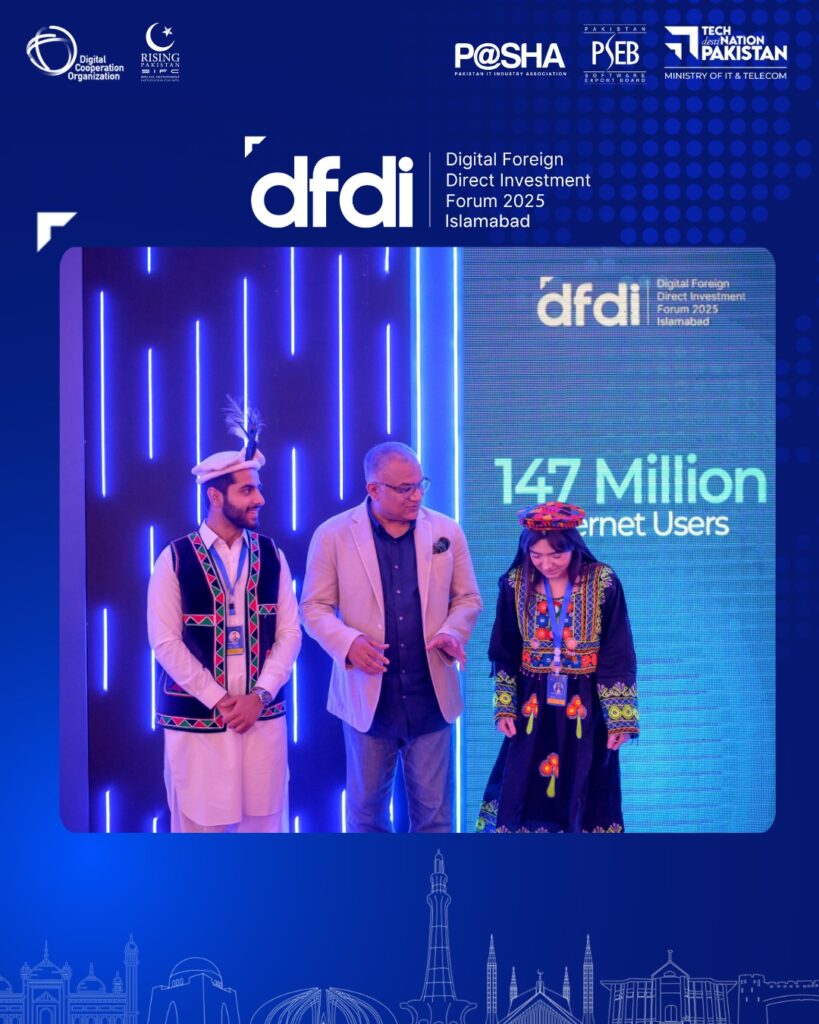Table of Contents
🌍 Role of DFDI in National Development: Building Digital-First Economies
The role of DFDI in national development is rapidly expanding as countries seek innovative ways to modernize their economies, empower citizens, and build sustainable futures. Digital Foreign Direct Investment (DFDI) introduces global capital, advanced technology, and cross-border collaboration—directly addressing challenges in infrastructure, education, public services, and economic inclusion.
Unlike traditional FDI, DFDI focuses on building digital foundations—such as broadband networks, e-learning systems, e-governance platforms, FinTech infrastructure, and AI-driven health systems. In doing so, DFDI plays a catalytic role in transforming developing and emerging economies into thriving, digitally empowered nations.
🧭 Understanding the Role of DFDI in National Development
The role of DFDI in national development lies in enabling digital transformation across key sectors. It aligns with SDGs, enhances global competitiveness, and bridges inequality by expanding access to modern services and infrastructure.
DFDI contributes to:
- Economic growth through tech investment
- Digital literacy and job creation
- Enhanced public service delivery
- Innovation-driven entrepreneurship
- Sustainable and green development models
By infusing technology, knowledge, and capital, DFDI helps countries future-proof their development pathways.

🧱🧱 Key Contributions Role of DFDI in National Development
The role of DFDI in national development is multi-dimensional, shaping not only a country’s digital infrastructure but also its socio-economic foundation. DFDI—Digital Foreign Direct Investment—contributes beyond just capital inflow. It brings innovation, inclusion, and institutional advancement that traditional FDI often doesn’t deliver. Below are the key areas where DFDI creates meaningful and measurable development impact:
📡 1. Building Digital Infrastructure as a National Asset
One of the primary contributions of DFDI is the development of robust digital infrastructure, which forms the backbone of a modern economy. These investments lay the groundwork for national transformation.
- High-speed internet through fiber-optic cables
- Cloud computing systems and smart data centers
- Expansion of 4G/5G connectivity
- Rural broadband programs and satellite internet
Such digital infrastructure boosts productivity across all sectors—agriculture, education, finance, and governance.
Example: In Indonesia, DFDI helped finance satellite infrastructure to expand rural connectivity, enabling farmers to access market prices and weather forecasts.
💳 2. Enabling Financial Inclusion Through Digital Tools
The role of DFDI in national development is especially impactful in creating equitable access to financial services. DFDI-funded FinTech platforms help the unbanked population access secure, affordable, and mobile-first banking services.
- E-wallets and mobile payments
- Blockchain-based remittance platforms
- Digital savings accounts and micro-credit
- QR-code payment systems in local markets
This strengthens local economies by empowering individuals, small businesses, and underserved groups like women and rural entrepreneurs.
🏫 3. Empowering Education Through Digital Learning
DFDI supports a revolution in learning by making education accessible, adaptive, and future-ready. This includes:
- E-learning platforms with real-time tracking
- Remote learning for underserved students
- Digital skill-building for youth and adults
- AI-based learning personalization
Google’s DFDI-backed partnerships in Africa are delivering digital training to over 10 million young people.
By enhancing education quality and reach, DFDI helps build a skilled workforce, which is essential for long-term economic development.
🏥 4. Modernizing Healthcare Systems
Another important contribution of DFDI to national development lies in digitizing healthcare systems, which leads to better health outcomes and cost-efficiency.
- AI-powered diagnostics and screening
- Electronic medical records (EMRs)
- Telemedicine platforms
- Health data analytics for public planning
This expands healthcare access, especially in remote areas, and improves disease prevention, monitoring, and treatment.
🏛️ 5. Enhancing Governance and Institutional Efficiency
Digital investment also strengthens public institutions and improves government transparency, accountability, and service delivery.
- E-governance platforms for registrations, tax, and ID services
- Digital voting and participatory governance tools
- Big data analytics for decision-making
- Anti-corruption tools using blockchain and digital logs
Estonia’s DFDI-backed e-government system has become a global model for public service digitalization.
Strong governance systems are essential for a well-functioning democracy and a thriving economy.
🧠 6. Stimulating Innovation and Entrepreneurial Ecosystems
DFDI helps foster a culture of innovation by funding:
- Tech hubs and digital incubators
- R&D centers in partnership with universities
- Startup accelerators and mentorship programs
- Hackathons and innovation competitions
This promotes homegrown solutions and supports digital entrepreneurs who can scale globally, contributing to GDP and job creation.
🔄 7. Improving Trade and Market Access
Digital platforms funded through DFDI connect local businesses to regional and international markets.
- E-commerce marketplaces
- B2B portals
- Online export compliance and customs services
- Digital supply chain management tools
This enhances trade volume, increases efficiency, and reduces transaction costs—vital components of national competitiveness.
🌱 8. Advancing Sustainable and Green Development
The role of DFDI in national development now includes climate-focused digital solutions that support environmental sustainability:
- Smart grids and digital energy monitoring
- AI-driven agricultural planning and resource use
- Climate-resilient infrastructure monitoring tools
- Solar-powered broadband stations
DFDI is increasingly aligned with environmental, social, and governance (ESG) goals, contributing to climate adaptation and mitigation strategies.
🌐 9. Creating Cross-Border Digital Corridors
As digital infrastructure matures, DFDI facilitates regional cooperation through:
- Data-sharing agreements
- Joint cloud storage and cybersecurity protocols
- Unified digital payment systems across borders
- Regional startup exchanges and partnerships
The African Continental Free Trade Area (AfCFTA) includes digital investment corridors supported by DFDI to unify markets and boost digital trade.
🛡️ 10. Improving National Security and Cyber Resilience
Cybersecurity infrastructure is critical for protecting national data, systems, and citizens. DFDI brings both technology and expertise to:
- Set up national CERTs (Computer Emergency Response Teams)
- Protect critical infrastructure from cyber threats
- Ensure secure data governance and encryption
- Build local cybersecurity talent through training
This is especially important as countries digitize sensitive services like elections, tax systems, and healthcare.
📊 Economic Impact of DFDI on National Development
DFDI not only digitizes systems—it directly impacts economic indicators:
| Economic Indicator | Impact via DFDI |
|---|---|
| GDP Growth | Enhanced productivity, tech-led industries |
| Employment | ICT job creation, startup ecosystem growth |
| SME Development | Access to digital tools, markets, and finance |
| Exports | Global tech services and digital goods |
| Tax Revenue | Formalized digital transactions |
🔄 DFDI and Sustainable Development Goals (SDGs)
The role of DFDI in national development is closely aligned with the UN’s 2030 Agenda. Key SDGs supported by DFDI include:
- SDG 4: Quality Education
- SDG 8: Decent Work and Economic Growth
- SDG 9: Industry, Innovation, and Infrastructure
- SDG 10: Reduced Inequalities
- SDG 17: Partnerships for the Goals
By empowering digital access and innovation, DFDI helps achieve these goals faster and more equitably.
🌐 Real-World Examples of DFDI in National Development
🇪🇬 Egypt – Digital Egypt Initiative
DFDI partnerships with Huawei and Oracle support national digital identity, cloud infrastructure, and smart city projects.
🇪🇪 Estonia – Global Digital Leader
Through early DFDI adoption, Estonia implemented e-Residency, e-Tax, and fully digital public services.
🇳🇬 Nigeria – FinTech Boom
DFDI-backed FinTech startups like Flutterwave and Paystack are transforming mobile banking and e-commerce.
⚠️ Challenges in Leveraging DFDI for Development
Despite its many benefits, the role of DFDI in national development can be hampered by:
- Unclear or outdated digital policies
- Limited digital literacy and human capital
- Regulatory roadblocks for foreign tech companies
- Weak local digital infrastructure
- Data privacy and cybersecurity risks
Overcoming these challenges requires a national commitment to digital reform, capacity building, and inclusive policy frameworks.
🔮 The Future Role of DFDI in National Development
Looking ahead, DFDI will play an even more central role in shaping nations. Key trends include:
- Green DFDI Projects: Smart agriculture, solar-powered infrastructure, and green data centers
- AI and Emerging Tech: Expansion of AI, IoT, blockchain, and robotics in public services
- Cross-Border Digital Corridors: Regional partnerships for joint tech infrastructure and data flows
- Gender-Inclusive Tech Programs: Targeted DFDI support for women in digital entrepreneurship
Countries that embrace these trends early will lead the digital economy of tomorrow.

❓ Frequently Asked Questions (FAQs)
Q1: What is the role of DFDI in national development?
It’s the use of digital foreign investment to support national goals in infrastructure, education, healthcare, and innovation.
Q2: How does DFDI differ from traditional FDI?
Traditional FDI focuses on physical assets, while DFDI supports digital infrastructure, platforms, and services.
Q3: Which sectors benefit the most from DFDI?
ICT, education, health, financial services, and governance are key beneficiaries of DFDI.
Q4: What are the risks of relying on DFDI?
Risks include data privacy concerns, technological dependency, and regulatory challenges.
Q5: How can developing countries attract more DFDI?
By improving digital infrastructure, reforming policy, ensuring cybersecurity, and fostering public-private partnerships.
Follow us on Facebook for Quick Response & Quires – Digital Foreign Direct Investment (DFDI)
